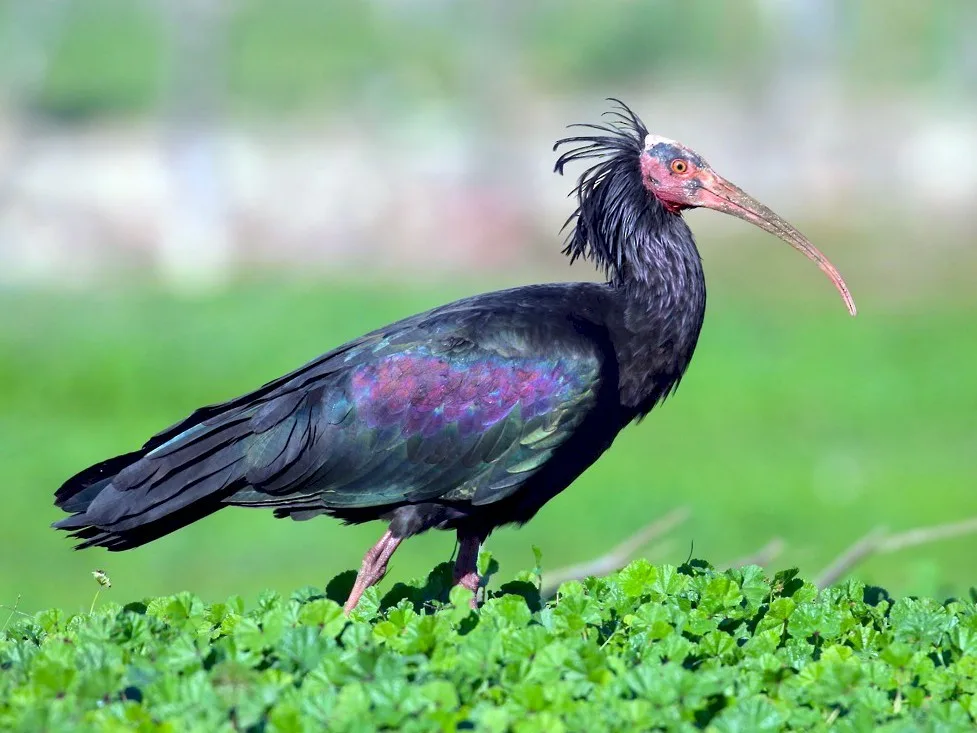Bill to make compulsory Muslim marriage registration
Syllabus: GS1/Society
Context
- Recently, Assam has passed the ‘Assam Compulsory Registration of Muslim Marriages and Divorces Bill, 2024’ to make the registration of Muslim marriages and divorces with the government compulsory.
About the Assam Compulsory Registration of Muslim Marriages and Divorces Bill, 2024
- It replaced the British-era Assam Moslem Marriages and Divorces Act of 1935, which allowed child marriages and did not adequately address polygamy, and introduced several crucial reforms.
- It aims to prevent child marriages, ensure consent, protect women’s rights, and curb polygamy within the Muslim community.
- It recognises the importance of formalising marriages and divorces through government registration.
Validating Existing Registrations
- Previous marriage registrations conducted by Qazis (Islamic legal authorities) will remain valid. The focus is on new marriages falling under the new legislation.
- The government seeks to maintain respect for Islamic rituals while ensuring legal clarity.
Conditions for Registration Under the New Legislation
- The couple must have been living together as husband and wife since the solemnization of their marriage.
- They should reside within the district of the marriage and divorce registrar for at least 30 days preceding the marriage.
- Both parties must be of legal age (at least 18 years for girls and 21 years for boys) at the time of solemnization.
- Consent must be freely given.
- Both parties should be of sound mind and not incompetent or insane.
- The marriage should not violate the prohibited degree of relationship according to Shariat or Muslim law.
- The application for marriage registration must include relevant identity and residence documents.
SHe-Box
Syllabus: GS2/ Governance
Context
- The Union Ministry of Women and Child Development has launched SHe-Box, a centralised portal for registering and monitoring complaints of sexual harassment of women at the workplace.
About
- It serves as a centralized repository of information related to Internal Committees (ICs) and Local Committees (LCs) formed, encompassing both the government and private sectors.
- It offers a common platform to file complaints, track their status, and ensure a time-bound processing of complaints by ICs.
- It also provides assured redressal of complaints and a streamlined process for all stakeholders.
- The portal through a designated nodal officer will enable real-time monitoring of complaints.
Source: TH
SCO Meet in Islamabad
Syllabus :GS 2/IR
In News
- Pakistan has invited Prime Minister Narendra Modi to the Shanghai Cooperation Organisation’s (SCO) Council of Heads of Government meeting, scheduled for October 2024 in Islamabad.
Previous SCO Engagements:
- India hosted the SCO Summit virtually last year, with Pakistan’s then Prime Minister Shehbaz Sharif participating via video link.
- In May 2023, Pakistan’s Foreign Minister Bilawal Bhutto Zardari visited India to attend the in-person SCO Council of Foreign Ministers meeting in Goa, marking the first such visit in nearly 12 years.
- Pakistan currently holds the rotating chairmanship of the SCO Council of Heads of Government (CHG) and will host the two-day in-person meeting.
| Do you know ? – Relations between Pakistan and India remain strained, mainly due to the Kashmir issue and cross-border terrorism. – India has maintained that it desires normal relations with Pakistan, provided that Pakistan creates an environment free of terrorism and hostility. 1. Pakistan downgraded its ties with India following the abrogation of Article 370 by the Indian Parliament on August 5, 2019. |
Shanghai Cooperation Organisation (SCO)
- It is a permanent intergovernmental international organization established on June 15, 2001 in Shanghai (PRC).
- Founding Members: Kazakhstan, China, Kyrgyzstan, Russia, Tajikistan, Uzbekistan
- Current Member States:

- Official Languages: Russian and Chinese
- Decision-Making Bodies: Council of Heads of States (CHS): Meets annually to decide major issues
- Council of Heads of Government (CHG): Meets annually to discuss multilateral cooperation, economic priorities, and approve the budget
- Goals: Strengthen mutual trust and good-neighborliness among member states
- Encourage cooperation in politics, trade, economy, science, culture, education, energy, transport, tourism, and environmental protection
- Ensure and maintain regional peace, security, and stability
- Promote a fair and rational international political and economic order.
Source:TH
Quasar
Syllabus:GS 3/Space
In News
- Astronomers using the European Southern Observatory’s (ESO) Very Large Telescope (VLT) have discovered the brightest known black hole, identified as a quasar.
About
- The quasar, named J0529-4351, has a mass of 17 billion Suns and consumes about one Sun’s worth of matter per day.
- It is described as the most luminous object ever observed, emitting over 500 trillion times more light than the Sun.
- The light from J0529-4351 took over 12 billion years to reach Earth, indicating it is located very far from us.
Quasars

- They are a subclass of active galactic nuclei (AGNs) known for their extreme luminosity.
- They are highly luminous galactic cores where gas and dust fall into a supermassive black hole, emitting radiation across the entire electromagnetic spectrum.
- They are among the most luminous objects in the universe, emitting thousands of times more light than the entire Milky Way.
- They are typically observed at great distances from Earth, meaning we see them as they were billions of years ago.
- Hubble Space Telescope Discoveries: In 1996 Hubble captured an image of a quasar located 9 billion light-years away, marking its 100,000th exposure.
- Insights from Quasars: The study of quasars helps understand the birth of galaxies and the rate of expansion of the universe.
Source:TH
Northern Bald Ibis
Syllabus: GS3/ Environment
Context
- The northern bald ibis, also known as the Waldrapp, hunted to extinction by the 17th century, was revived by breeding and rewilding efforts over the last two decades.
About
- Characteristics: The Northern Bald Ibis has a long, under-curved beak. They are characterized by their black plumage, iridescent green, and bald red head, with individual black markings.
- Distribution: The bird used to be common across North Africa, the Arabian Peninsula and much of Europe. However, it became extinct in central Europe for over 300 years due to hunting and habitat destruction.
- Northern Bald Ibises hunt with the help of their sense of touch to poke in the ground for insect larvae, earthworms, and other invertebrates.
- Conservation Status: The IUCN Status of the species is “Endangered”. (Earlier it was “critically endangered”).
- Conservation efforts: It is making a comeback as scientists guide 36 of these birds on their ancient migration route from Austria to Spain using an ultralight aircraft.

Source:TH
Chandipura Virus
Syllabus: GS2/Health
Context
- The World Health Organisation (WHO) has recently identified the current Chandipura virus outbreak in India as the largest in 20 years.
Chandipura Virus
- Chandipura virus, aka Chandipura vesiculovirus (CHPV), is an RNA virus belonging to the Rhabdoviridae family, which also includes the rabies virus.
- It was first identified in 1965 in Chandipura, a village in Maharashtra.
- Spread: It occurs by the sting of a vector-infected species of sandflies like Phlebotomine sandflies and Phlebotomus papatasi, and some mosquito species such as Aedes aegypti (which is also the vector for dengue).
- The virus resides in the salivary gland of these insects, and can be transmitted to humans or other vertebrates like domestic animals through bites.
- Symptoms: It mainly affects children aged 9 months-14 years. Fever, vomiting, loose motion and headache are the main symptoms.
- The infection can reach the central nervous system which can lead to encephalitis — inflammation of the active tissues of the brain.
- Treatment: There is no specific antiviral treatment or vaccine for Chandipura virus infection.
Source: TH
Bonda Tribe
Syllabus: Tribes in India
Context
- An Odisha tribal boy from the Bonda tribe becomes the first from the community to clear NEET exam set to pursue MBBS programme.
About the Bonda tribe (aka Remo people)
- It inhabits the wild and secluded Malkangiri district in Odisha, near the river Machkund. Their distinctiveness lies not only in their geographical isolation but also in their unwavering spirit and ancient cultural practices.
- Their self-identification as ‘Remo’ reflects this spirit of Independence and Freedom.
- Bonda men are known for their bravery and boldness. They carry traditional weapons like bows and arrows.
- The Bonda language belongs to the Austro-Asiatic language group.
Dormitory Organisation
- The Bonda tribe practises a dormitory system. Men and women have separate living spaces.
- These dormitories serve as communal areas for socialising, rituals, and discussions.
Pacific Islands Forum (PIF)
Syllabus: GS2/International Groupings
Context
- The annual meeting of the Pacific Islands Forum (PIF) has begun in Nuku’alofa, the capital of Tonga.
About
- The event is being attended by more than 1,500 delegates from around 40 countries.
- In this year’s annual meeting, climate change is high on the agenda — several PIF members are among the world’s worst-affected countries, especially due to rising sea levels.
Pacific Islands Forum
- PIF is an intergovernmental organisation formed in 1971.
- It consists of 18 member states located in the Pacific region.
- Australia, Cook Islands, Federated States of Micronesia, Fiji, French Polynesia, Kiribati, Nauru, New Caledonia, New Zealand, Niue, Palau, Papua New Guinea, Republic of Marshall Islands, Samoa, Solomon Islands, Tonga, Tuvalu, and Vanuatu.
- The PIF aims to push for economic growth, enhance political governance and security for the region, and strengthen regional cooperation.
- The annual Forum meetings are chaired by the Head of Government of the Host Country, who remains as the Forum Chair until the next meeting.
- The organisation discusses priority issues at its annual meeting, where decisions made by the member states are reached by consensus.
- The decisions are implemented by the Pacific Islands Forum Secretariat.
Source: IE
Previous article
INS Arighaat and Nuclear Policy of India